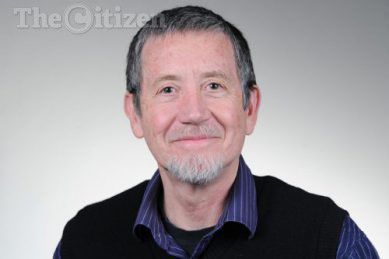In the Winnie documentary, various people are subjected to one-sided criticism and not given the right of reply.

A mural of the late Winnie Madikizela-Mandela is seen along a main street in Soweto, 13 April 2018. A funeral service will be held for Madikizela-Mandela on 14 April at the near-by Orlando Stadium and then she will be burried in Fourways. Picture: Michel Bega
The right of reply should be sacrosanct. It’s reputational self-defence.
You don’t expect right of reply on Twitter or Facebook. But in print and broadcast media, anyone facing serious allegations has a right to put their version. It’s a variation of the legal principle audi alteram partem, which is Latin for “listen to the other side”.
This sense of fair play is implicit in SA’s Bill of Rights. The SA Press Code is explicit. It says a newspaper “should usually seek the views of the subject of serious critical reportage in advance of publication”.
There are similar provisions in the Broadcasting Complaints Commission of South Africa (BCCSA) Code of Conduct, which should apply to the Winnie documentary.
In paragraph 36.1, the BCCSA code says: “In presenting a programme in which controversial issues of public importance are discussed, a licensee shall make reasonable efforts to fairly present opposing points of view either in the same programme or in a subsequent programme forming part of the same series …”
Paragraph 36.2 says: “A person whose views are to be criticised in a broadcasting programme on a controversial issue of public importance shall be given a right to reply to such criticism on the same programme. If this is impracticable, however, opportunity for response to the programme should be provided …”
In the Winnie documentary, people are subjected to one-sided criticism. Victims include three named and 40 unnamed journalists. All are accused of working for Stratcom, an apartheid-era propaganda outfit.
Swept up in a tide of Winnie euphoria, many among us have glossed over these flaws in the documentary. The doccie praises Winnie, so it must be accurate, right? Perhaps not.
Print and broadcast media have been quick to defend the reputations of named journalists.
However, defence of the general principle of right of reply has been less obvious. Thus Sydney Mufamadi, a relic best remembered for his association with former president Thabo Mbeki, found no media supporters in his corner.
So on Monday he called a briefing, where it was apparent that his communication skills have not improved since his 2008 departure from Cabinet. Coherence is not his forte.
Winnie’s enemies are now as scarce as ex-National Party supporters. Mufamadi on Monday sought to counter the allegation that when he was safety and security minister, he wanted investigations into Winnie reopened.
Fair enough, the allegation was made in the documentary. He had a right to give his version, which had not been sought. But he was silly to blame former opposition leader Tony Leon. Mufamadi’s assertion implies that Leon had authority to order police to reopen investigations into Winnie. In fact, Mufamadi and former police commissioner George Fivaz were responsible for such matters.
Whatever Leon said about Winnie at the time, he was doing his opposition job. He was not giving instructions to police.
At the 2017 Sundance Film Festival in Utah, Winnie received the directing award in the documentary category. Evidently balance, including the right of reply, is not important to some documentary judges.

DA city of Joburg councillor Martin Williams.
For more news your way, follow The Citizen on Facebook and Twitter.
Download our app




